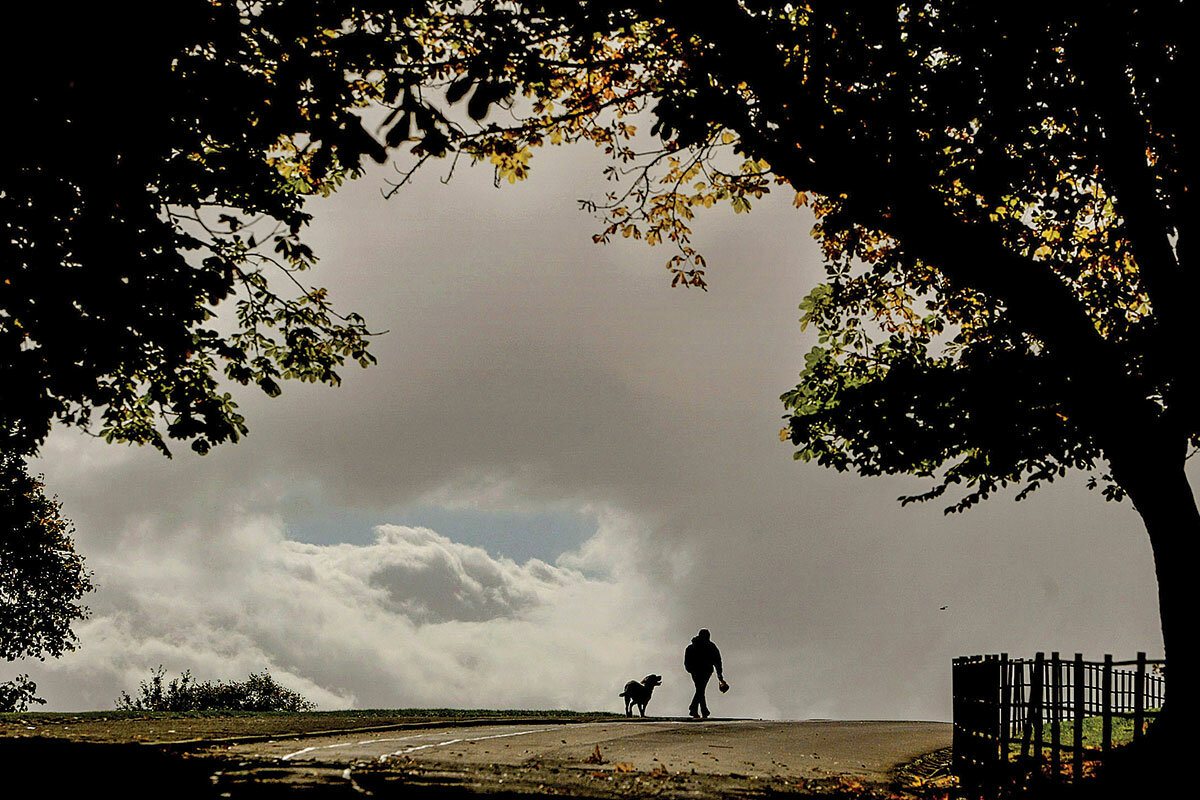Protecting fur and fins: Bans on fashion in Israel and fishing in Jamaica
Loading...
We highlight other firsts this week, including a new effort by a pair of online booksellers to help authors earn money from sales of their titles as used books.
1. United States
The U.S. Senate has confirmed the first Muslim American federal judge in the country’s history. Zahid Quraishi was confirmed by a vote of 81-16 to the U.S. District Court for New Jersey on June 10. He was among President Joe Biden’s first wave of nominees to fill judicial vacancies, and is the son of Pakistani immigrants.
Why We Wrote This
Our progress roundup includes both legal and cooperative means to an end. In Israel, fashion fur sales are prohibited by law. In Jamaica’s Oracabessa Bay, fishers working with conservationists are key to the improving health of the ecosystem.
The Rutgers Law School graduate also served two tours in Iraq following 9/11, and later became the first Asian American to sit on the federal bench in New Jersey when he was appointed as a U.S. magistrate judge. “He is a model for the outstanding contributions that Pakistani and Muslim Americans make to this country every day,” said Dr. Ijaz Ahmad, chairman of the American Pakistani Public Affairs Committee. “We are grateful to President Biden for nominating him, and to members of the Senate for confirming him.”
Axios, NPR
2. Jamaica
A unique fishing sanctuary is improving Jamaica’s coastal health and proving that community partnership is key to marine conservation. Bottom feeders like the parrotfish help clean algae from coral reefs, and healthy reefs, in turn, offer shelter for fish, mitigate shoreline erosion, and help maintain healthy oceans. Overfishing these species creates a domino effect that threatens the island’s tourism industry and coastal communities, with fishers forced to dive and look farther out to sea to catch fish.
To address this dilemma, a group of fishers partnered with the GoldenEye Foundation in 2011 to create a no-fishing zone on Jamaica’s northern coast. Today, 18 people work for the Oracabessa Bay Fishing Sanctuary, and all decisions are made through the Oracabessa Bay Marine Trust, which is composed of 50% fishers and 50% GoldenEye Foundation board members. Herbivorous fish abundance reportedly reached 6,792g/100m2 in 2020, up from 1,192g/100m2 in 2013. The project is set to continue its work with protecting fish, while also replanting coral and releasing sea turtles into the ocean. Its success has inspired other conservation groups, and the Oracabessa Bay Fishing Sanctuary is currently working to bring its management model to four other coastal sites in Jamaica.
Mongabay
3. United Kingdom
Leaders in Glasgow, Scotland, have committed to planting 18 million trees across the city – roughly 10 trees for every resident – in one of the United Kingdom’s most ambitious reforestation initiatives. Reforestation is considered a key strategy to mitigate climate change, as healthy tree cover helps slow erosion, promote biodiversity, and absorb CO2 emissions. Today, Glasgow has about 71,000 acres of fragmented broad-leaved woodland. The Clyde Climate Forest project aims to expand and connect these areas, and boost overall urban woodland cover from 17% to 20%. The pledge comes as the city prepares to host the United Nations COP26 climate summit in November.
Eight local councils have agreed to the initiative, which is funded in part by a £400,000 ($560,000) grant from the Woodland Trust’s Emergency Tree Fund. Trees will be planted on vacant land, at former coal-mining sites, and along city streets and parks to help cool these neighborhoods. Organizers are calling on their communities to identify new sites or areas where trees have been lost and to participate in planting.
Glasgow Live, The Guardian
4. Israel
Israel has become the first country to ban the sale of fur in the fashion industry. Hailed as a historic milestone by animal rights groups, the amendment was signed into law in June and takes effect in December. “Using the skin and fur of wildlife for the fashion industry is immoral and is certainly unnecessary,” said Gila Gamliel, the environmental protection minister at the time, in a statement. “Signing these regulations will make the Israeli fashion market more environmentally friendly and far kinder to animals.”
Other governments have taken action to limit the fur industry. The United Kingdom became the first nation to ban fur farming in 2003, with many European countries following suit, though the sale of imported furs is still legal. In 2019, California banned fashion fur sales with some exceptions. Israel will allow the sale of fur for “scientific research, education or instruction, and for religious purposes or tradition.”
The Jerusalem Post, Jewish News Syndicate
5. Kenya
Rural counties in Kenya are improving sanitation by retrofitting latrines with safe toilets. A 2014 national survey found that 66% of rural Kenyans used either uncovered pit latrines or an open field or bush, a number that mirrors a worldwide estimate of some 6 out of 10 people for whom access to proper sanitation remains a challenge. Only 24% of Kenyan villages are certified as open defecation-free – a determinant of better sanitation. To improve hygiene, several counties are turning to SATO products, developed through nonprofit funding and supported by the U.S. Agency for International Development.
The self-sealing plastic molds come in three varieties and can embed in a concrete base around any open latrine. They flush with just 1 to 4 cups of water, which opens a weighted flap at the bottom of the pan. SATO covers reduce odor, keep bugs from entering or exiting the pit, and improve safety for children and others using the bathroom at night. Distributed by community health volunteers, the toilets range in price from $6 to $12, plus the price of masonry for proper installation. Residents of Siayu County have purchased more than 60,000 SATO products to date, and the local director of health services says the county is working to install the toilets in early childhood development centers and health facilities.
Science Africa, Innovate4Health
World
For the first time, writers will be able to make money on used book sales thanks to a new collaboration between author organizations and online book retailers. Studies show the median income for full-time writers has been declining for years, and according to research from The Society of Authors, the pandemic has exacerbated the trend. Meanwhile, the used book market is growing.
A new program called AuthorSHARE seeks to address this disparity by ensuring writers receive royalties on the secondhand sale of their books at either World of Books or Bookbarn International. The retailers will track and share sales information with the Authors’ Licensing and Collecting Society, which has more than 112,000 members throughout 105 countries. The group will then match the sales with its member database and pay authors from a £200,000 ($280,000) royalty fund, which is expected to grow in future years. Author payments are currently capped at £1,000. “The value of a book goes beyond the value of the paper it is printed on, so it is great to see that original creators will see some benefit when their work finds a new reader,” said novelist Joanne Harris.
The Bookseller









